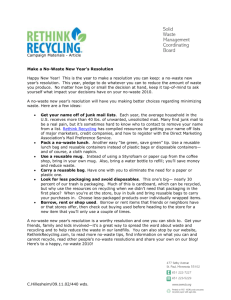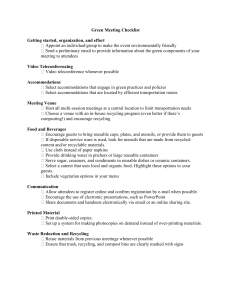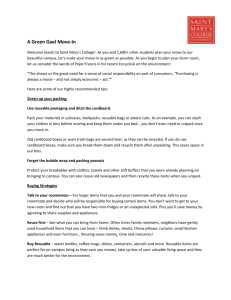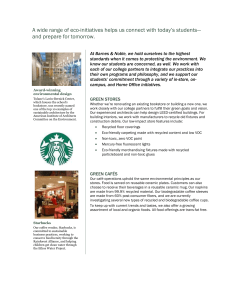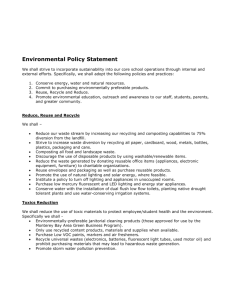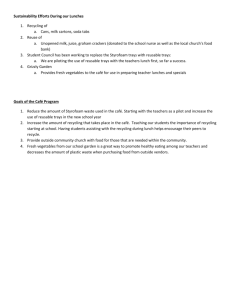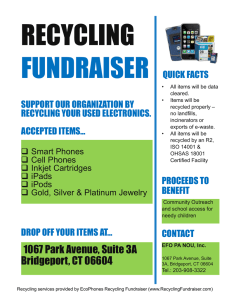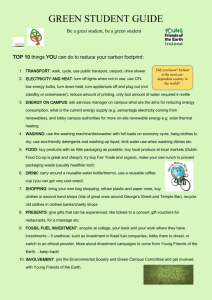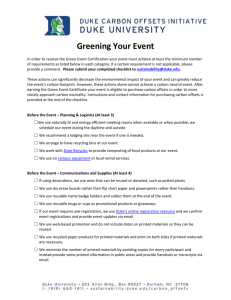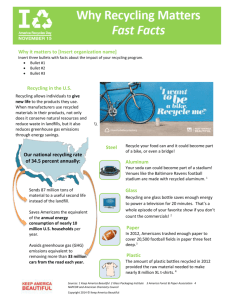Green Event Certification - Sustainability Office
advertisement
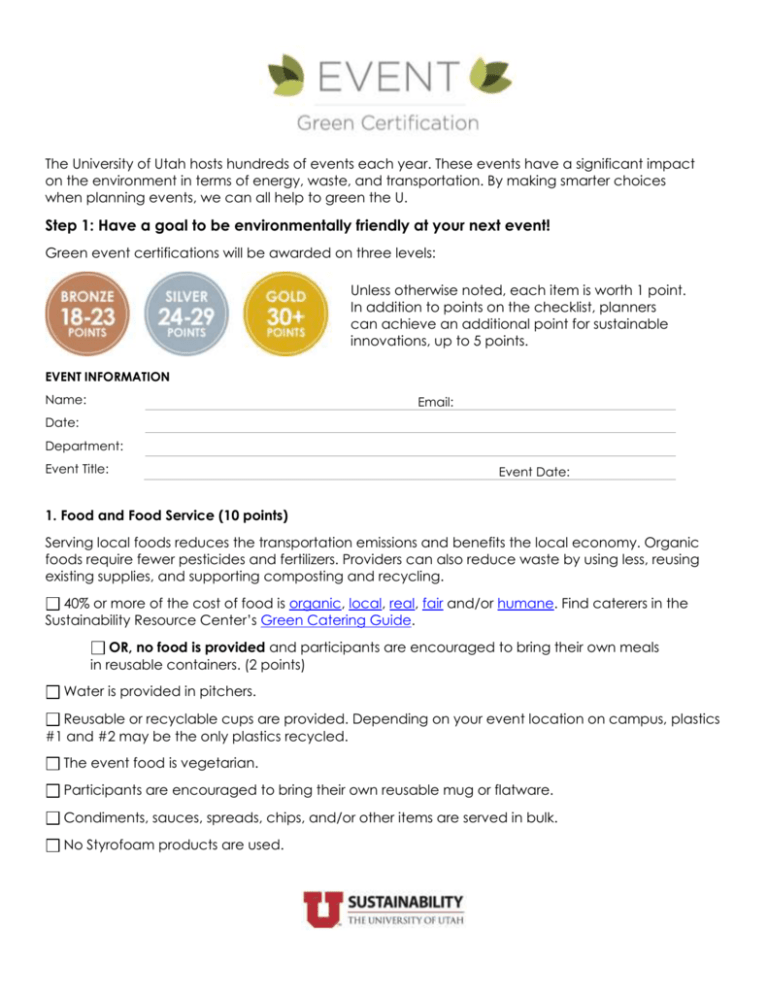
The University of Utah hosts hundreds of events each year. These events have a significant impact on the environment in terms of energy, waste, and transportation. By making smarter choices when planning events, we can all help to green the U. Step 1: Have a goal to be environmentally friendly at your next event! Green event certifications will be awarded on three levels: Unless otherwise noted, each item is worth 1 point. In addition to points on the checklist, planners can achieve an additional point for sustainable innovations, up to 5 points. EVENT INFORMATION Name: Email: Date: Department: Event Title: Event Date: 1. Food and Food Service (10 points) Serving local foods reduces the transportation emissions and benefits the local economy. Organic foods require fewer pesticides and fertilizers. Providers can also reduce waste by using less, reusing existing supplies, and supporting composting and recycling. 40% or more of the cost of food is organic, local, real, fair and/or humane. Find caterers in the Sustainability Resource Center’s Green Catering Guide. OR, no food is provided and participants are encouraged to bring their own meals in reusable containers. (2 points) Water is provided in pitchers. Reusable or recyclable cups are provided. Depending on your event location on campus, plastics #1 and #2 may be the only plastics recycled. The event food is vegetarian. Participants are encouraged to bring their own reusable mug or flatware. Condiments, sauces, spreads, chips, and/or other items are served in bulk. No Styrofoam products are used. GREEN EVENT CERTIFICATION Table centerpieces are sustainable and/or reusable or not used. Cloth tablecloths and/or cloth napkins are used. BONUS POINT: Reusable flatware is used. University Catering offers china, cloth napkins, tablecloths, glassware, and washable flatware for $1.25/plate. 2. Waste (7 points) Waste management is a big part of any event. If extra recycling bins are needed for your event on campus, contact your Recycling Coordinator. (Main campus, Joshua James; HRE, Frank Sitton; University Student Housing, Rick James.) Recycling bins are clearly and conveniently placed adjacent to all trash cans. Arrange with the Recycling Coordinator for your area. Clear signage is put up indicating which materials go into what recycling bin. Attendees are informed about Green Event Certification and asked to help meet goals. Live volunteer(s) are available to help guests sort their waste. Leftover food and beverages are donated to the Salt Lake City Rescue Mission. Contact Katie Hunt at University Catering for arrangements. (2 points) Reusable items are used to minimize waste. 3. Transportation (6 points) Nearly 40 percent of all campus emissions are transportation-related. The event is held on campus. Venue is accessible by foot, bicycle, Campus Shuttles, or public transportation. Secure bicycle and locker storage is provided for participants. Contact Commuter Services for bike corral costs and information. Event time is scheduled with consideration for public transportation timings, including buses and TRAX. Remember: Bus frequency drops after 6 p.m. Out of town/state guests attend via video or teleconferencing. Public transportation timetables, maps, and routes to the event are made available. 4. Marketing and Handouts (10 points) Distribute materials electronically and look into reusable alternative solutions. Give-away items are minimized to avoid excess waste and reduce costs. Or, if give-away items are used, there is a convenient drop off point for unwanted items. GREEN EVENT CERTIFICATION Registration, announcements and updates for event are done electronically. Event guides/agendas/programs are distributed electronically. Printing is entirely eliminated. Or, unavoidable printing is double sided on FSC Certified, post-consumer recycled and chlorine-free paper. Printed materials are printed with an eco-friendly font (Century Gothic, Times Roman, Calibri, Verdana, Arial, and Ecofont). There is a convenient drop off point for all unwanted handouts and accessories. Dry erase boards, blackboards or projectors are used instead of paper flip charts. Name tags or badges are collected at the end of the event to be reused or recycled. Sustainability terms or concepts are displayed at the event. Gifts or favors are locally made. 5. Energy and Offsets (3 points) Consider energy alternatives you can utilize at your events. Natural light is utilized instead of indoor lighting and/or only lighting that is necessary is used. Please include a count of how many fixtures were kept or turned off at your event. Fixtures On: Fixtures Off: The event’s environmental impact is counteracted by purchasing wind credits. (2 points) 6. Innovation Credits (5 points) Did you integrate something green and unique to your event that is not listed above? Innovation: Innovation: Innovation: Innovation: Innovation: Last step: Send completed form via email to ayrel.clark@sustainability.utah.edu.
